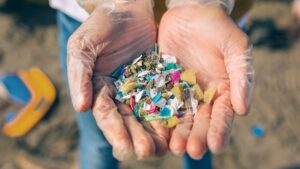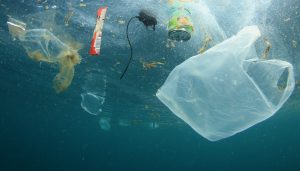Starbucks to phase out black plastic in Canada as part of global push to reduce waste
Starbucks is promising to cut its carbon emissions and waste in half by 2030, a goal that would require major changes from the global coffee chain that sells the majority of its products in disposable packaging – including its iconic to-go cups that end up in landfills in most markets.
The company also revealed to The Globe and Mail that it is working to phase out black plastic cutlery, which is not recyclable, in its 1,600 Canadian stores by the summer.
On Tuesday, Starbucks released the findings of a recent assessment by sustainability consulting firm Quantis, of its environmental footprint. In 2018, its own global operations as well as vendors in its supply chain produced 868,000 tonnes of waste, used one billion cubic metres of water, and emitted 16 million tonnes of greenhouse gases – the equivalent of nearly 40 billion miles driven by the average passenger vehicle.
In a public letter on Tuesday, Starbucks CEO Kevin Johnson said the company aspires to store more carbon than it emits, eliminate waste, and provide more clean water than it uses. He said the environmental commitment – the company’s largest to date – will require expanding plant-based menu options, shifting from single-use to reusable packaging, and investing in reforestation, among other strategies.
“By embracing a longer-term economic, equitable and planetary value proposition for our company, we will create greater value for all stakeholders,” Mr. Johnson wrote.
Last summer, Starbucks introduced a strawless lid for iced drinks in the United States and Canada and plans to phase out straws worldwide by the end of this year. The Quantis report shows Starbucks’ largest source of packaging waste is polypropylene, followed by Paperboard and Cupstock. The coffee chain has allowed customers to bring their own cups for a small discount in some markets, however, only 1.3 per cent of beverages were served in reusable cups in 2018. This alone saved 42 million disposable cups.
Starbucks has promised to develop 100-per-cent compostable and recyclable cups by 2022. It is part of the NextGen Consortium – a group of companies that includes McDonald’s, Coca-Cola and Nestle – which is testing green cup technologies. Ms. Zimmer, director of global sustainability, said a key challenge is that materials that are recyclable or compostable in one city might not be in another. The chain’s to-go cup is only accepted for recycling in about a dozen major cities (Vancouver among them). According to Ms. Brisebois, the patchwork of waste-management standards is a frustration among many retailers working to improve packaging.
Read the full and original story at TheGlobeandMail.com



